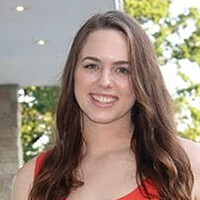'A Hundred Small Lessons' explores the question of home ownership through the lives of two women
Loading...
A home is much more than a physical structure. It is the foundation of family, a meeting place for friends, and the center of domestic activity. When one leaves a house, what remains of the memories that were made? In A Hundred Small Lessons, author Ashley Hay explores the question of true ownership of a home through the lives of two women whose paths intersect through the sale of a house.
Elsie Gormley takes a tumble in the home she has lived in for more than 60 years. While she lies on the floor, watching the daylight travel across the green carpet, she reflects on the many memories she has made in the home she has loved so well. She and her husband were the first owners of the house in the 1940s, and they raised their children there and cared for their grandchildren together. Elsie always knew she wanted to be a mother, and she was able to fulfill her dream of caring for others in her house in Brisbane, Australia.
But now, due to her fall, Elsie is moved to an assisted living facility. She is saddened to leave her home after so many years. The house is sold to a middle-aged couple, Lucy Kiss and her husband Ben Carter, and their young son, Tom. Lucy sets about making the house a home for the couple who has spent the last few years following Ben’s job as a journalist, jumping from Washington to London to Sydney, deciding to settle in Ben’s hometown of Brisbane only after their son turns a year old.
Settling down is the family’s newest adventure. Though Lucy finds the house charming, she struggles to feel comfortable. There are reminders everywhere that the house has been lived in, from leftover doilies and photos to holes in the floorboard where the house was drained after the flood of ’74. In many ways, it still feels like Elsie’s house, and Lucy grapples with her life as a new mother in a setting where, for all her efforts, she is left feeling unsettled.
The house is the center for the unfolding of Elsie and Lucy’s parallel lives. Though 60 years apart, their stories are interwoven as Elsie struggles with dementia, which blurs the line between past and present. For Elsie, her memories are often just as real as the present moment.
For Ms. Hay, creating a story line which jumps between the past and modern day isn’t a new feat. In a 2013 interview with The Sydney Morning Herald, after her book "The Railwayman’s Wife" was published, Hay said, “At first I was not sure I could write fiction so I decided to trick myself into it by writing a book ['The Body in the Clouds'] that required lots of research to ease me into it gently. Now I've realized that whenever I tackle fiction I have a need to fracture the narrative by moving backwards and forwards in time.” Elsie’s dementia sets the stage for passing seamlessly through time as Elsie’s memories blend together throughout the novel.
Hay, who began her career as a journalist, has produced a variety of fiction and nonfiction work. “Lessons” is her third novel. The Brisbane resident often keeps her plots close to home, interspersing truths from her own life into her work. Her second novel, “The Railwayman’s Wife,” won the 2013 Colin Roderick Award for the best reflection of Australian life.
Hay explores Elsie and Lucy’s lives through their own eyes as well as through the gaze of their loved ones, creating a compassionate portrait of these two housewives. Though the plot plods along slowly, a pace which seems to mirror real life, Elsie and Lucy are well-rounded, interesting characters. The tensions and complexities of their lives and their relationships with others are intriguing and will hold readers’ attention throughout the book.
“Lessons” is an engaging look at the lives of two women who are centered around the home, physically and figuratively, and what remains when one enters a home that knows a previous owner. The novel is best slowly savored on a reflective afternoon while sipping, as would Lucy, a warm cup of tea.









